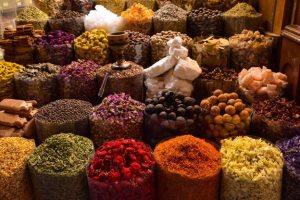19 Aug 2021 What is Food Crime and How Can Your Business Manage the Risks
Food crime is a serious form of fraud and is defined by the dishonest representation of or tampering with an item intended for consumption. The dishonesty can occur at any stage in the supply or production of food and can relate to food, drink or animal feed.
There are many variations of food crime, but they can be largely defined by the following categories:
- Theft of products with the intention of reselling.
- Unlawful processing – the slaughter, preparation or processing of products of animal origin outwith relevant legislation and regulations.
- Waste diversion – re appropriating food, drink or feed intended for disposal back into the supply chain.
- Adulteration – including a foreign substance with the intention to lower production costs or make the product appear of better quality than it is.
- Misrepresentation of origin, quality, provenance or benefits – marketing or labelling a product to portray its characteristics inaccurately.
- Misrepresentation of durability – incorrectly labelling a product’s expiration date.
- Documentation fraud – use of falsified documents to sell, market or falsely substantiate a product.
Which products are most often affected by food crime?
The most commonly affected food and drink products are:
- Red meat – there are several risk points in the red meat sector from theft of livestock to misrepresentation. Do you remember the horsemeat scandal of 2013, or the more recent Russel Hume case?
- Dangerous non-foods – the marketing of supplements with claims for health benefits, when the products actually contain substances not fit for human consumption.
- Shellfish – illegal harvesting is a big problem around the UK coastline, leading to a secondary problem of misrepresentation of provenance.
- Alcohol – counterfeit and substandard alcoholic beverages are the main problem, but the more dangerous issue of spirits adulterated with industrial alcohol is a very dangerous concern.
- Fish – Concerns are mainly around species of white fish and fishing restrictions.
- Eggs – misrepresentation of date, quality and provenance. Misrepresenting eggs from overseas as UK eggs is particularly dangerous, as the UK has strict salmonella vaccination regulations.
- Olive oil – the deliberate mislabeling of olive oil as “extra virgin” when it has been extracted using cheaper, non-mechanical techniques is rife.
- Herbs and spices – fake high-value spices like vanilla and saffron are very common, and in 2015 an investigation found that 25% of all dried oregano on sale in the UK had been adulterated in some way.

How can your business prevent and manage food crime?
Tracking, tracing and quality control procedures are of paramount importance and can help your business to manage food crime risks. Tracking food and beverages through a global supply chain can be a big challenge, but an effective food traceability system is essential in the prevention of food fraud and will enable your business to quickly and efficiently act on any product withdrawal or recall situations.
Whilst profitability is of course important when selecting suppliers the cheapest option isn’t always the best idea. The FSA recommends engaging only with suppliers who demonstrate the same food traceability standards as your own business. This will help you to protect your supply chain and your business.
What help is available to manage food crime risk?
The National Food Crime Unit (NFCU) was formed in 2015. It is the dedicated law enforcement arm of the FSA and came into force following the 2013 horsemeat scandal. They work closely with local authorities, the police and International crime agencies to investigate, deter and prevent food crime.
The NFCU works with businesses within the food industry to ensure that businesses are well-informed about the risk of food crime. By raising awareness, they utilise businesses and consumers as part of the UK’s line of defence against food criminals.
In March 2021, The NFCU launched the Food Fraud Resilience Self-Assessment Tool. The tool helps food businesses to identify food crime threats and tackle them.
Darren Davies, Head of the FSA’s National Food Crime Unit, said: “The pandemic has been incredibly challenging for the food industry, but we know the damage the food crime can do both to a business’s reputation and to consumer health.
“While the UK has some of the safest and most authentic food in the world, it’s as important as ever for businesses to remain vigilant to the threat posed by criminals.
“Vulnerability can exist at any place along the route from the farm through to fork so I would encourage businesses of all sizes across the industry to make use of this free tool.”
What do you do if you’ve been a victim of food crime?
If you believe there is a problem with food you’ve been offered, or if you have come across a concern in the food and drink sector, it’s important that you alert the authorities as soon as possible. Reporting can be confidential if you are concerned about job security or relationships.
Poor hygiene practices in a food business are not instantly considered to be food crime. If you want to report a concern about poor food safety or hygiene you should contact your local authority, who will conduct an environmental health investigation.
Report food crime online here.
For more insights into food safety best practices, why not follow us on LinkedIn?










